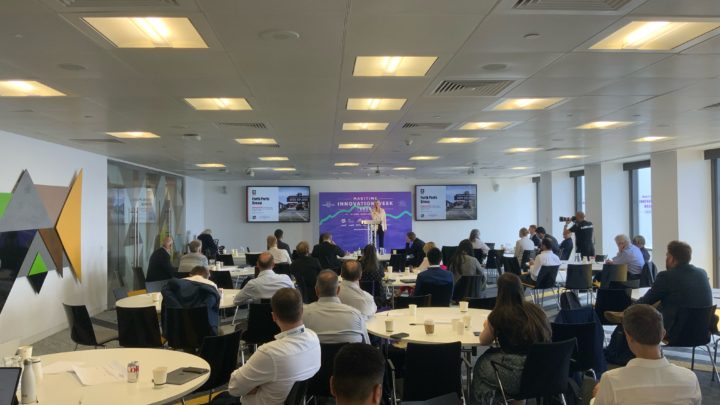
“How do we know so little about what’s in the box,” was something that struck me when I joined the industry from the power sector before the pandemic.
Although ports are a small part of the global logistics network, it was apparent that with so many data points we could create a tool that would improve insight and decision-making.
The adversity of the pandemic and resultant supply chain disruption brought forward the opportunity to fast-track our vision.
The results from our graduate-led project have been fantastic.
From front-to-back, we have created a self-service B.I. platform with some key A.I. functionality that removes that barrier to entry to data analytics, with demonstrable and immediate impact.
Unlocking business insights in real time
In one platform, we have created a solid data architecture and governance that is unlocking business insights in real time by tapping into multiple information streams at any one point.
Initially, the project focused on the group’s unitised business at Grangemouth and Tilbury whose access to data, control over systems and terminal operating system meant we could move quickly and more broadly.
But quickly we’ve moved from “what’s in the box?” to “where can we find operational efficiency across our entire business – from marine and cars to cruise and utilities?” – using this innovative tool.
The benefits are spread across several areas, including shifting informational imbalances and time savings for employees, while creating opportunities for incremental business growth through early insight of what is happening throughout the domestic supply chain.
Mitigating disruption
Reaching down the supply chain, we have been able to implement a direct proactive strategy throughout the pandemic and beyond.
This new tool has helped keep strategically important supply chains and NHS supplies moving during the pandemic, but also supported us in anticipating blockages, particularly towards the end of 2021.
Previously smaller decisions, where business strategy impact was unknown, could have been reactive and less effective, but we are now able to take a more interconnected approach ensuring actions are taken in a unified direction.
In a time of more ad hoc ship calls and container storage, we were able to better monitor congestion issues with a powerful set of reports to mitigate disruption with a demand driven and fluid approach to managing yard capacity.
For example, by adjusting to trends in stock holdings, average dwell times, vessel utilisation and scheduling, we acted at Grangemouth to create additional space to manage increased demand for laden export storage in the winter.
By creating satellite sites for storage of empty units, we were able to optimise the main yard’s capacity and unlock additional space for laden container storage.
This insight has increased terminal throughput, reduced fuel consumption and reduced costs by improving our operational efficiency, while presenting our customers with a platform that allows them to make more informed decisions to enhance domestic supply chain distribution, while giving early market insights.
But it’s not just operational improvements, automated market intelligence analysis helps to ensure we are having the right conversations with our customers and nurture throughput.
Whether applying A.I. to live operations, expanding automated plant equipment or increasing the use of data sharing platforms, over the coming years, Forth Ports remains committed to improving our operations as an informed supply chain partner at the cutting edge.
